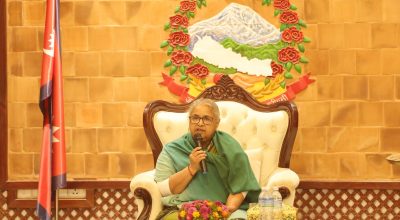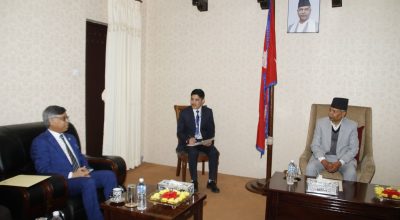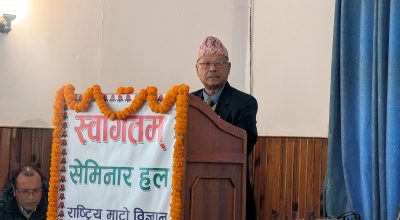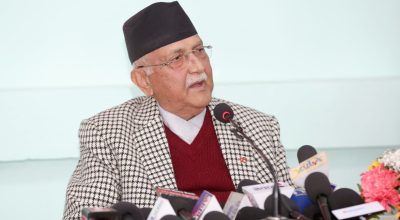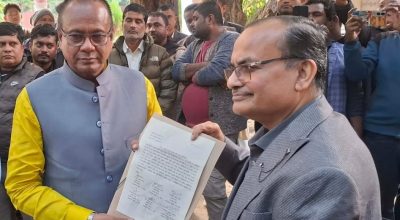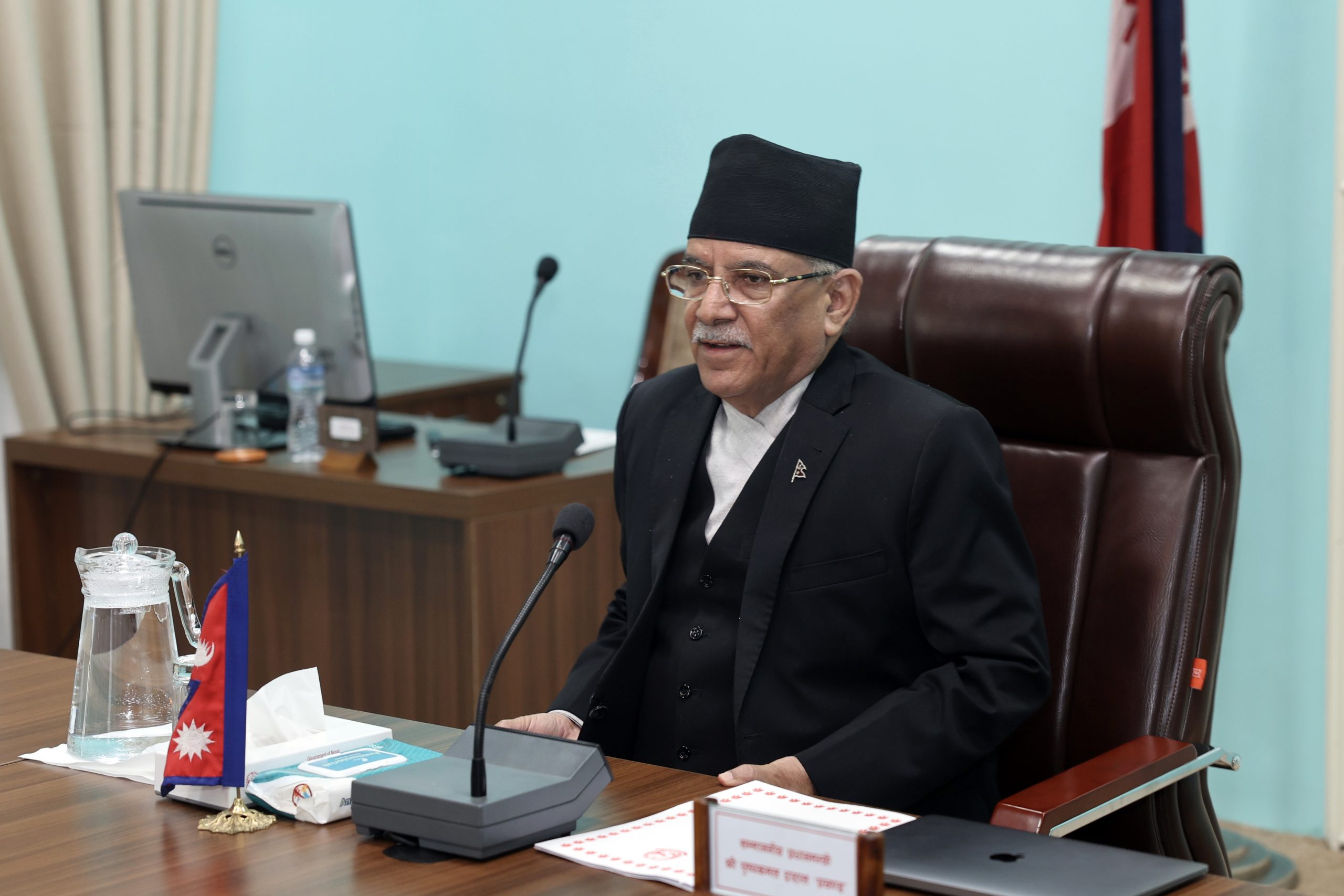
Kathmandu, Dec 21: Prime Minister Pushpa Kamal Dahal ‘Prachanda’ has pointed out the inevitability of developing systematic cities in a planned manner in step with the country’s topographical features.
Addressing the joint annual review meeting of the Ministry of Urban Development and the Ministry of Forests and Environment, Nepal, in Singha Durbar today, he said the development strategy should be to interconnect east and west and the north and south of the country.
The Prime Minister stressed on the need of building systematic model city within the Kathmandu Valley, referring to having brought forward the concept of ‘smart city’ during his second term as Prime Minister.
“Now, we should develop well-planned cities. We have called this as smart city. This long-term strategy should be implemented mulling it seriously,” he said.
Stating that some local governments are facing problem in service delivery for delay in the construction of their administrative buildings, PM Dahal stressed on constructing the administrative buildings of the local levels which are the governments closest to the people at the earliest.
He also stressed on taking ahead construction of systematic urbanization and the urban beautification simultaneously.
“The construction of the Mid-hill Highway was started when I became the Prime Minister for first time. We had also forwarded the construction of the Hulaki (Postal) Highway.
The north-south corridor is also our concept of development. The development model should be in tune with the country’s condition, the geographical features and the developing economic characteristics,” the PM said.
Prime Minister Dahal underscored the need of making many policy and legal improvements in the forest and environment sectors, saying the Act of 2029 BS did not address the present situation.
He added that the narrative that forest and development are incompatible should be changed.
Talking about the reality of Nepal’s importing timber worth billions of rupees annually despite the country being rich in the forest resources, he said the situation of not being able to even use easily the timber from fallen trees in the forest should be put to an end.
Urban Development Minister Sita Gurung informed the meeting about the condition of having to carry out work amidst large number of projects and the budget limitation.
She suggested including the project of developing systematic cities also as the national pride projects. Minister Gurung stated that the Ministry has made some progress towards constructing private houses in a period of one year, and now it will be focused on constructing the private houses damaged due to the earthquake.
Saying activities of development projects have been affected due to lengthy legal process for cutting down trees and the unscientific customs policy of timber export, Minister for Forests and Environment, Birendra Mahato, mentioned that the Ministry has been focusing its attention to resolve such problems.
Similarly, Chief Secretary Baikuntha Aryal pointed out the need of forwarding forest and development as the supportive of each other.
Secretary at the Ministry of Urban Development, Saraju Baidya, shared that initiatives were taken for effective implementation of foreign aid budget as well as necessity of appropriate coordination between project level and budget management was seen, stressing on the need of increasing human resources in view of work pressure.
He further said the Ministry has already made preparation to make reconstruction of the houses damaged by earthquake in Jajarkot and Rukum West effective.
Likewise, Secretary at the Ministry of Forest and Environment, Deepak Kharal, viewed that the ministry was active to resolve all the problems as it took a long time and huge human resources in utilization of forest areas and cutting trees as well as for environmental impact assessment.
Secretaries at the Office of the Prime Minister and Council of Ministers—Ek Narayan Aryal and Ganesh Pandey – pointed out the need of adopting a liberal policy for the use of timber produced in Nepal within the country, stressing that activities related to environmental impact assessment would be carried out in a smooth and effective manner.





